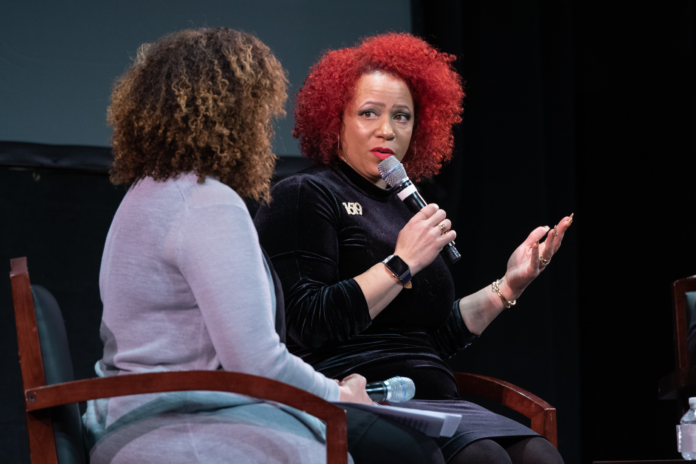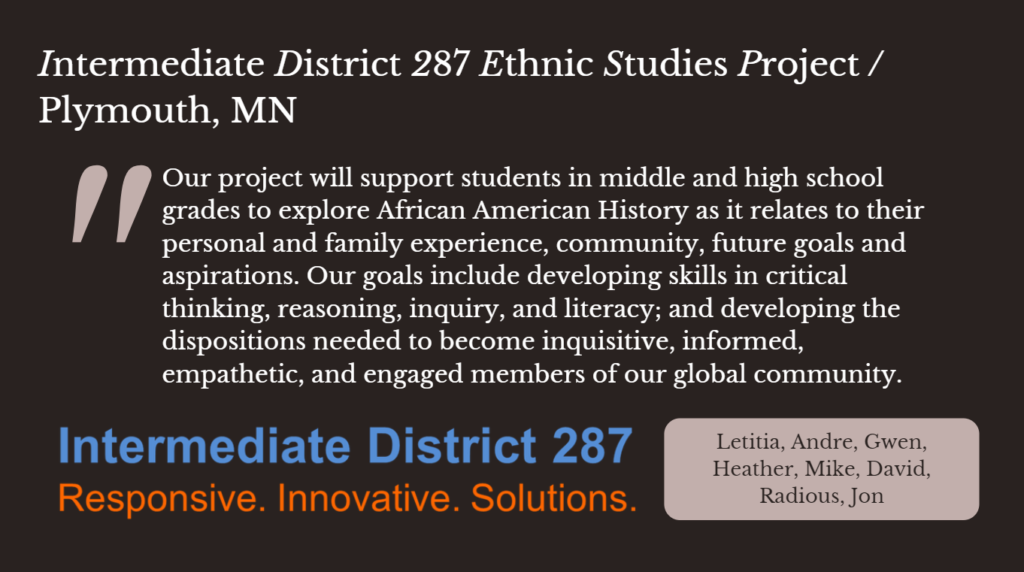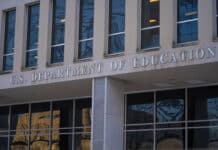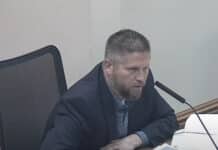
(Center of the American Experiment) — Educators from Intermediate District 287 have been selected to join the inaugural cohort of The 1619 Project Education Network, according to the Pulitzer Center.
Forty-two teams of educators from 22 states will “collaborate” with each other, journalists, historians and the Pulitzer Center education team “to explore the materials that make up The 1619 Project from The New York Times Magazine” in response to “feedback and requests from thousands of educators nationwide about the need for support, guidance, and networking opportunities as they implement resources from 1619 in their classrooms.”
The Times‘ reframing of American history through its 1619 Project has been criticized for its inaccuracies and factual errors by many leading scholars and historians. Paired with the project’s inaccuracies is an ideological slant, representing the American Left’s approach to history “not as a search for truth but as a vehicle for advancing a political agenda,” wrote American Experiment’s Katherine Kersten in the Star Tribune.

Intermediate District 287 partners with 11 member districts — Brooklyn Center, Eden Prairie, Edina, Hopkins, Orono, Osseo, Richfield, Robbinsdale, St. Louis Park, Wayzata and Westonka — to provide specialized student services. Its contribution to The 1619 Project Education Network will be an Ethnic Studies Project, according to the Pulitzer Center.
Ethnic studies is connected to critical race theory, according to an EdSource article that cites a high school history teacher saying, “Ethnic studies without critical race theory is not ethnic studies.”
District 287’s “Equity and Nondiscrimination” policy states the document’s purpose is “to establish a framework grounded in critical race theory” and “examine the Permanence of Racism, how Whiteness as Property manifests, and Critique Liberalism.”
Despite parents, grandparents and citizens voicing concern over critical race theory being taught in K-12 schools, politicians (including Minnesota Rep. Ilhan Omar), journalists, educators and school leaders claim that CRT is not being used in public education.
Catrin Wigfall
Catrin Wigfall is a Policy Fellow at Center of the American Experiment.
Catrin’s experience in education and policy research began during her time with the Young Leaders Program at The Heritage Foundation. Her interest in education policy led her to spend two years teaching 5th grade general education and 6th grade Latin in Arizona as a Teach for America corps member. She then used her classroom experience to transition back into education policy work at the California Policy Center before joining American Experiment in February 2017.
Catrin graduated summa cum laude from Azusa Pacific University in California, where she earned a Bachelor of Arts degree in Political Science.
















